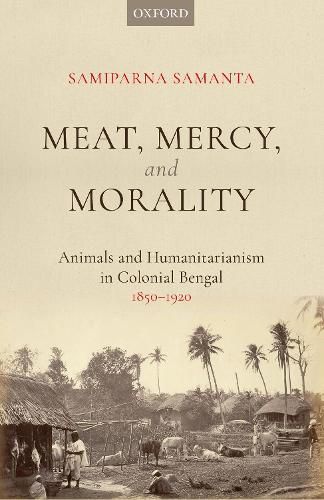Readings Newsletter
Become a Readings Member to make your shopping experience even easier.
Sign in or sign up for free!
You’re not far away from qualifying for FREE standard shipping within Australia
You’ve qualified for FREE standard shipping within Australia
The cart is loading…






This book disentangles complex discourses around humanitarianism to understand the nature of British colonialism in India. It contends that the colonial project of animal protection in late nineteenth-century Bengal mirrored an irony. Emerging notions of public health and debates on cruelty against animals exposed the disjunction between the claims of a benevolent Empire and a powerful imperial reality where the state constantly sought to discipline its subjects-both human and nonhuman. Centered around stories of animals as diseased, eaten, and overworked, the book shows how such contests over appropriate measures for controlling animals became part of wider discussions surrounding environmental ethics, diet, sanitation, and the politics of race and class. The author combines history with archive, arguing that colonial humanitarianism was not only an idiom of rule, but was also translated into Bengali dietetics, anxieties, vegetarianism, and vigilantism, the effect of which can be seen in contemporary politics of animal slaughter in India.
$9.00 standard shipping within Australia
FREE standard shipping within Australia for orders over $100.00
Express & International shipping calculated at checkout
This book disentangles complex discourses around humanitarianism to understand the nature of British colonialism in India. It contends that the colonial project of animal protection in late nineteenth-century Bengal mirrored an irony. Emerging notions of public health and debates on cruelty against animals exposed the disjunction between the claims of a benevolent Empire and a powerful imperial reality where the state constantly sought to discipline its subjects-both human and nonhuman. Centered around stories of animals as diseased, eaten, and overworked, the book shows how such contests over appropriate measures for controlling animals became part of wider discussions surrounding environmental ethics, diet, sanitation, and the politics of race and class. The author combines history with archive, arguing that colonial humanitarianism was not only an idiom of rule, but was also translated into Bengali dietetics, anxieties, vegetarianism, and vigilantism, the effect of which can be seen in contemporary politics of animal slaughter in India.